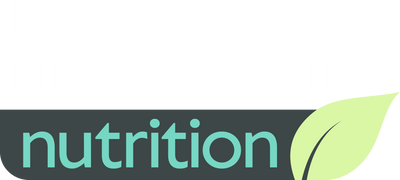Introduction to Chemical Free Soaps
Consumers are increasingly shifting towards natural and chemical-free soaps like Dr. Bronner's Vegan Certified Pure Castile Liquid Soap, Pure Soap Bars and Pure Sugar Soaps. Chemical-free soaps are formulated without synthetic additives, preservatives, or harmful chemicals.
Key Benefits
- Skin-Friendly: These soaps are less likely to cause irritation, making them suitable for sensitive skin types.
- Eco-Friendly: Using natural ingredients reduces environmental impact.
- Organic Ingredients: For example, Dr. Bronner Certified Organic Baby Unscented Pure Castile Liquid Soap is ideal for babies, promoting gentle cleansing.
- Hydration: Products like Renewing Vegan Body Butter with Hibiscus Papaya and Smoothing Vegan Body Butter with Coconut offer deep moisturization.
For oral hygiene, one should discover the advantages of plant-based toothpaste and mouthwash for a natural, chemical-free clean.
Understanding the Harmful Effects of Chemicals on the Skin
Chemical-laden soaps can have detrimental effects on the skin, often causing irritation, dryness, and allergic reactions. Commonly used chemicals include:
- Parabens: Preservatives that can disrupt hormone function and have been linked to breast cancer.
- Sulfates: Cleansing agents that strip the skin of its natural oils, leading to dryness and irritation.
- Phthalates: Often found in synthetic fragrances, these chemicals can disrupt endocrine function and cause reproductive issues.
Using products like Dr. Bronner's vegan-certified pure castile soap can help avoid these harmful ingredients:
- Dr. Bronner's Vegan Certified Pure Castile Hemp Peppermint Liquid Soap
- Dr. Bronner Vegan Certified Sandalwood Jasmine Pure Castile Liquid Soap
- Dr. Bronner Certified Organic Baby Unscented Pure Castile Liquid Soap
Choosing such natural alternatives can promote healthier skin and reduce exposure to toxic substances. Additionally, enhancing skincare with products like Renewing Vegan Body Butter with Hibiscus Papaya and Smoothing Vegan Body Butter with Coconut offers nourishment without harsh chemicals.
Benefits of Using Chemical Free Soaps
Utilizing chemical free soaps, such as Dr. Bronner's Vegan Certified Pure Castile Hemp Peppermint Liquid Soap and Dr. Bronner's Vegan Certified Sandalwood Jasmine Pure Castile Liquid Soap, offers numerous advantages for both the skin and the environment.
- Gentle on Skin: Free from harsh chemicals and synthetic ingredients, these soaps are gentle and ideal for sensitive skin.
- Eco-Friendly: Being biodegradable, they reduce pollution and are safer for aquatic life. This contributes positively to environmental preservation.
- Organic Ingredients: Products like Dr. Bronner Certified Organic Baby Unscented Pure Castile Liquid Soap contain natural ingredients, ensuring that the skin is nourished without exposure to harmful chemicals.
- Health Benefits: Regular use of chemical free soaps can diminish skin irritations and allergies.
- Ethical Choices: Endorsing products like Renewing Vegan Body Butter with Hibiscus Papaya and Smoothing Vegan Body Butter with Coconut reflects a commitment to cruelty-free and ethical consumer practices.
- Oral Care: Additionally, discover the advantages of plant based toothpaste and mouthwash which can offer safe, effective oral hygiene solutions.
How Chemical Free Soaps Help with Skin Conditions
Using natural soaps, such as those offered by brands like Dr. Bronner's, significantly aids in managing various skin conditions.
- Gentle Formulas: Products like Dr. Bronner's Vegan Certified Pure Castile Hemp Peppermint Liquid Soap and Dr. Bronner's Certified Organic Baby Unscented Pure Castile Liquid Soap are designed to be gentle on the skin, reducing irritation.
- No Harsh Chemicals: Lack of harmful substances in Dr. Bronner's Vegan Certified Sandalwood Jasmine Pure Castile Liquid Soap contributes to a healthier skin barrier.
- Moisturizing Properties: Using products like Renewing Vegan Body Butter with Hibiscus Papaya or Smoothing Vegan Body Butter with Coconut helps maintain skin hydration.
- Healing Ingredients: The ingredients used in these products are known for their beneficial properties, improving skin conditions such as eczema, psoriasis, and acne.
Additionally, exploring the advantages of plant-based toothpaste and mouthwash can contribute to overall health by avoiding synthetic additives, promoting a holistic approach to wellness.
Specific Skin Conditions Improved by Chemical Free Soaps
Eczema
Natural soaps such as dr bronners vegan certified pure castile hemp peppermint liquid soap aid in reducing symptoms of eczema. Their organic components help in maintaining hydration and soothing irritated skin.
Psoriasis
Dr bronner vegan certified sandalwood jasmine pure castile liquid soap is known for its calming qualities. It reduces inflammation and scaling, effectively managing psoriasis symptoms.
Sensitive Skin
Dr bronner certified organic baby unscented pure castile liquid soap is ideal for individuals with sensitive skin. The absence of synthetic fragrances ensures no irritation.
Dry Skin
Renewing vegan body butter with hibiscus papaya hydrates and renews, making it excellent for dry skin. Its natural oils penetrate deeper layers of skin for sustained moisture.
Aging Skin
Smoothing vegan body butter with coconut helps in maintaining skin elasticity and smoothness, which are essential for aging skin. The natural ingredients promote healing and repair.
Learn more: Discover the advantages of plant based toothpaste and mouthwash for complete oral care solutions.
Ingredients to Look for in Chemical Free Soaps
Natural soaps such as Dr. Bronner's Vegan Certified Pure Castile Hemp Peppermint Liquid Soap, Dr. Bronner's Vegan Certified Sandalwood Jasmine Pure Castile Liquid Soap, and Dr. Bronner's Certified Organic Baby Unscented Pure Castile Liquid Soap are formulated with ingredients that are beneficial for the skin while being eco-friendly. Key ingredients include:
- Olive Oil: Provides moisturizing properties and rich in antioxidants.
- Coconut Oil: Offers deep cleansing and lathering ability, found in many smoothing vegan body butter with coconut.
- Hemp Oil: Known for its anti-inflammatory properties and moisturizing benefits.
- Shea Butter: Prized for its hydrating and healing properties, commonly used in renewing vegan body butter with hibiscus papaya.
- Essential Oils: Adds natural fragrance and therapeutic properties.
- Plant-Based Glycerin: Maintains skin moisture balance.
Natural ingredients help discover the advantages of plant-based toothpaste and mouthwash.
How to Transition to Chemical Free Soaps
To transition to chemical-free soaps, one should initially research high-quality natural alternatives.
-
Explore Trusted Brands:
-
Dr. Bronner's offers a variety of options such as:
- Dr. Bronner's Vegan Certified Pure Castile Hemp Peppermint Liquid Soap
- Dr. Bronner Vegan Certified Sandalwood Jasmine Pure Castile Liquid Soap
- Dr. Bronner Certified Organic Baby Unscented Pure Castile Liquid Soap
-
Dr. Bronner's offers a variety of options such as:
-
Understand Skin Needs:
- Identify specific skin types and any sensitivities.
-
Use Gradual Replacement:
- Substitute one product at a time.
-
Supplement Routine:
- Include renewing vegan body butter with hibiscus papaya or smoothing vegan body butter with coconut for added moisture.
-
Oral Care:
- Discover the advantages of plant-based toothpaste and mouthwash.
-
Review Product Labels:
- Ensure that products are genuinely chemical-free.
Studies and Research Supporting Chemical Free Soaps
Studies underscore the benefits of chemical-free soaps. Research highlights that natural soaps like Dr. Bronner's Vegan Certified Pure Castile Hemp Peppermint Liquid Soap provide superior skin benefits and environmental sustainability compared to traditional, chemical-laden soaps.
Key findings include:
- Skin Health: Studies demonstrate that products like Dr. Bronner Vegan Certified Sandalwood Jasmine Pure Castile Liquid Soap are gentler on the skin and help maintain the natural moisture barrier.
- Environmental Impact: Research shows that organic options such as Dr. Bronner Certified Organic Baby Unscented Pure Castile Liquid Soap reduce water pollution.
- Toxicity Levels: Chemical-free soaps have lower toxicity levels, benefiting both users and wildlife.
- Complementary Benefits: Combining natural soaps with products like Renewing Vegan Body Butter with Hibiscus Papaya or Smoothing Vegan Body Butter with Coconut enhances skin nourishment and hydration.
Moreover, plant-based personal care items, as advocated in studies about Discover the Advantages of Plant-Based Toothpaste and Mouthwash, show reduced environmental harm while maintaining high efficacy. These findings collectively support the shift to chemical-free soaps.
Tips for Choosing the Right Chemical Free Soap
When selecting the right chemical-free soap, it is essential to consider a few key factors:
- Ingredients: Look for products like Dr. Bronner's vegan certified pure castile hemp peppermint liquid soap or Dr. Bronner vegan certified sandalwood jasmine pure castile liquid soap. These soaps feature natural, organic ingredients that are gentle on the skin.
- Certification: Ensure the product is certified organic. Dr. Bronner certified organic baby unscented pure castile liquid soap is an excellent example of a trustworthy, certified organic option.
- Skin Type: Consider your specific skin needs. Opt for products with soothing properties, like renewing vegan body butter with hibiscus papaya or smoothing vegan body butter with coconut.
- Functionality: Some soaps double as shampoo or toothpaste. Discover the advantages of plant-based toothpaste and mouthwash for added versatility and health benefits.
Environmental and Ethical Benefits of Chemical Free Soaps
Using products like Dr. Bronner's Vegan Certified Pure Castile Hemp Peppermint Liquid Soap or Dr. Bronner Vegan Organic Lemongrass Sugar Soap bring significant environmental and ethical benefits. Here are some key benefits:
- Eco-friendly ingredients: These soaps are made from natural, biodegradable ingredients that do not pollute water sources.
- Sustainable sourcing: Ingredients are often sourced from fair trade practices, promoting ethical consumerism.
- Cruelty-free: Products such as Dr. Bronner Certified Organic Soap Bars are cruelty-free, ensuring no animal testing.
- Zero waste packaging: Many brands emphasize minimal and recyclable packaging to reduce environmental impact.
In summary, switching to chemical-free soaps aids in environmental preservation and promotes ethical consumer habits. For moisturization, consider Renewing Vegan Body Butter with Hibiscus Papaya or Smoothing Vegan Body Butter with Coconut. Also, exploring options like plant-based toothpaste and mouthwash offer additional advantages for maintaining sustainability in daily hygiene routines.
Conclusion: Healthier Skin with Chemical-Free Soaps
Switching to Dr. Bronner's vegan certified products, including Dr. Bronner’s Vegan Certified Pure Castile Hemp Peppermint Liquid Soap, Dr. Bronner Vegan Certified Sandalwood Jasmine Pure Castile Liquid Soap, and Dr. Bronner Certified Organic Baby Unscented Pure Castile Liquid Soap, can significantly improve skin health.
Benefits:
- Chemical-Free: Natural soaps are free from harsh chemicals that can harm the skin.
- Moisturizing: Products like Renewing Vegan Body Butter with Hibiscus Papaya and Smoothing Vegan Body Butter with Coconut provide intense moisture.
- Oral Hygiene: Discover the advantages of plant-based toothpaste and mouthwash.
By utilizing these natural alternatives, skin receives nourishment without exposure to toxic substances, promoting overall skin health and well-being.





























